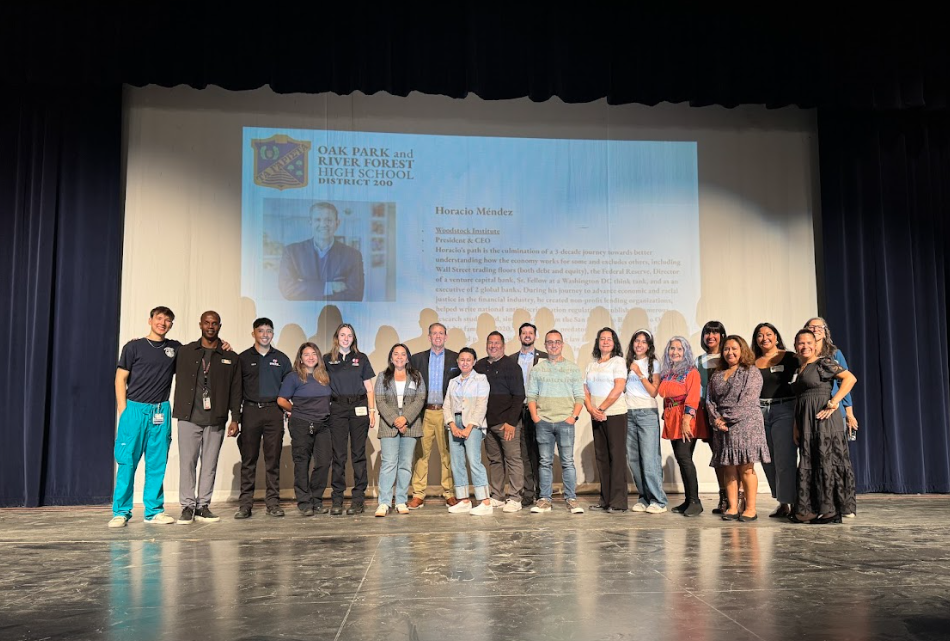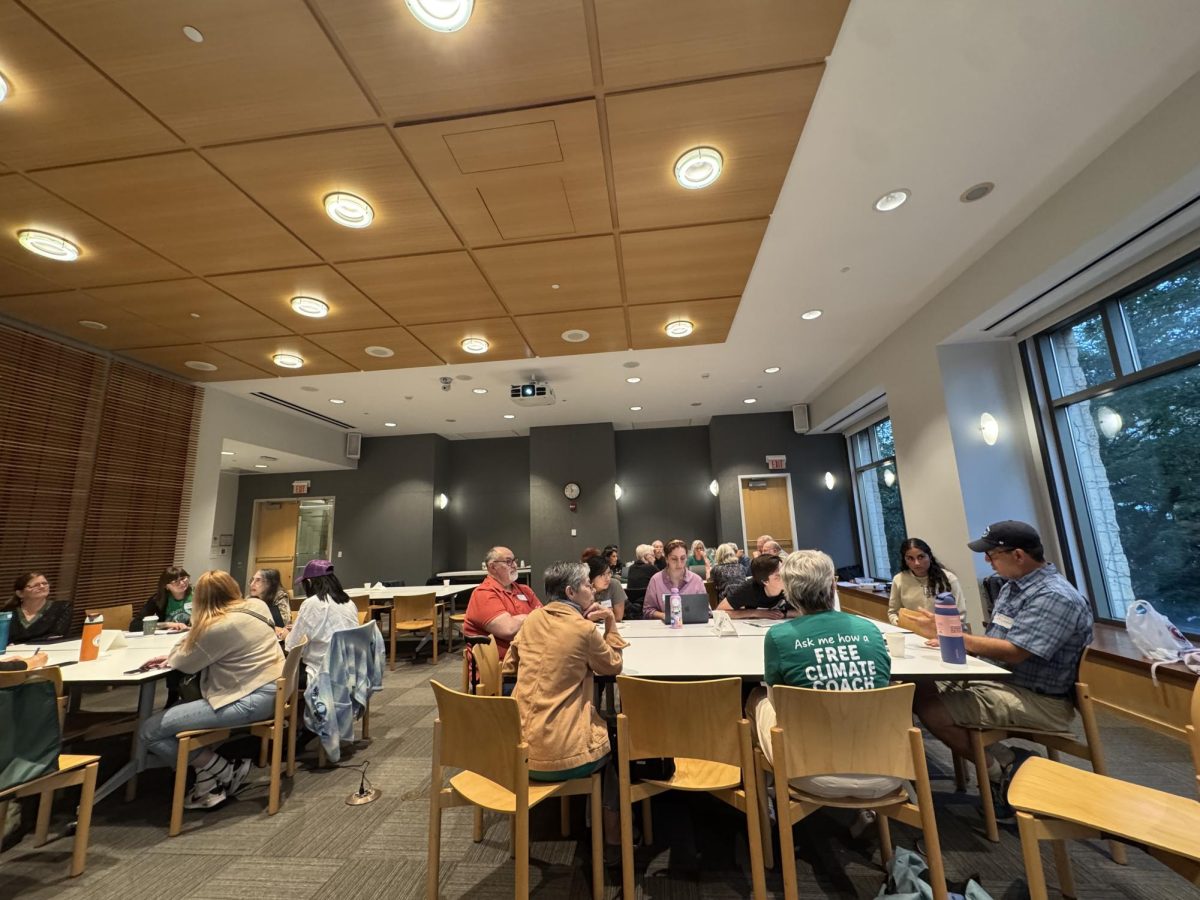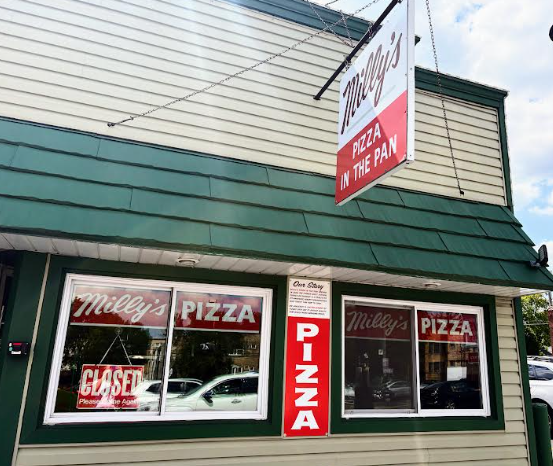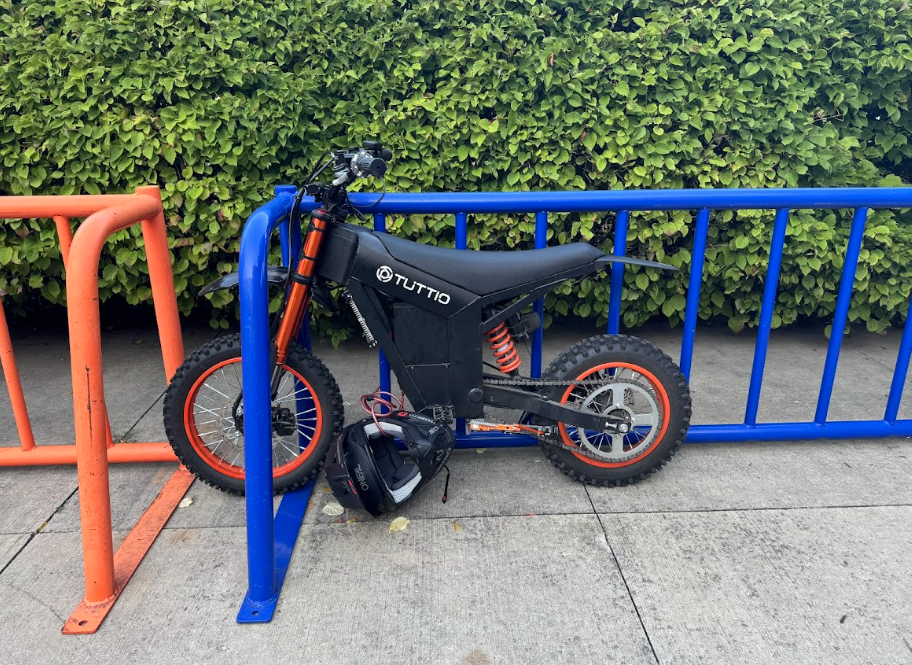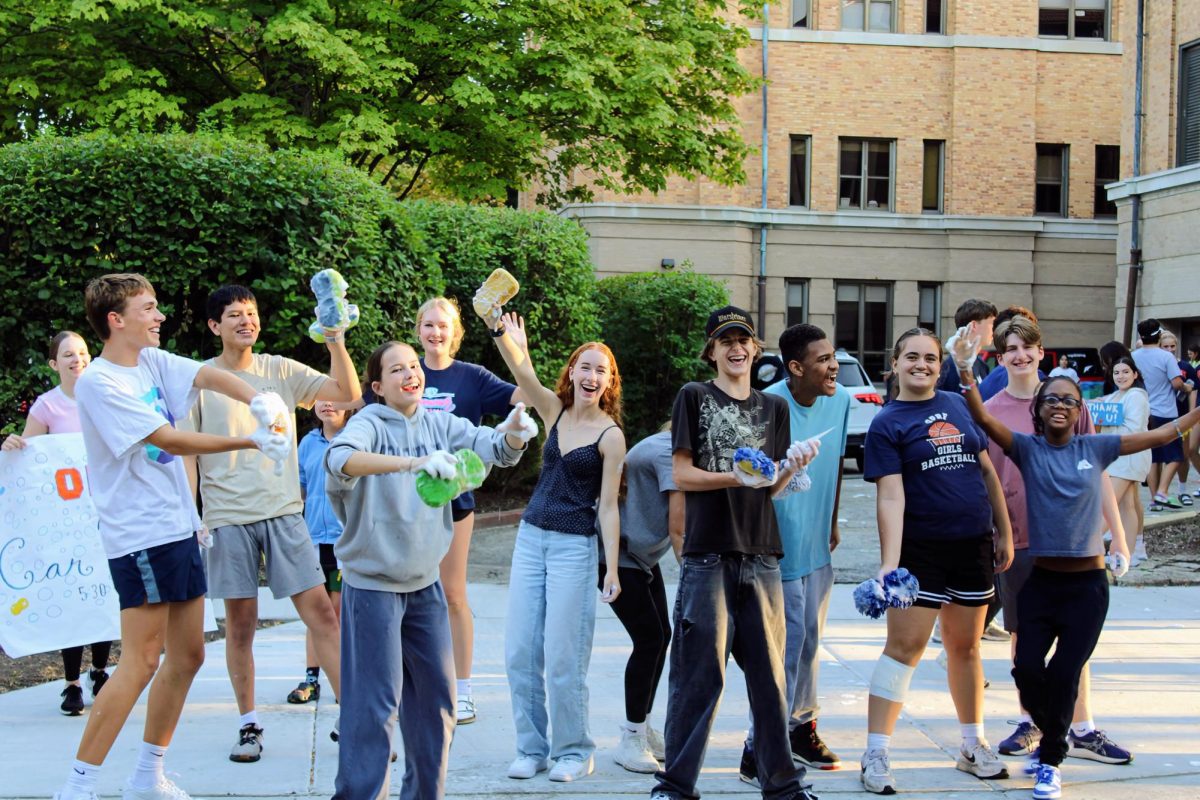In December, 45-year-old Henry Gil arrived in Oak Park after an arduous, four-month-long journey from his homeland, Venezuela. Gil and his partner, Emily Gimenez, had traveled thousands of miles through seven countries. Their odyssey included a four-day trek through the Darién Gap, a perilous stretch of jungle through which there are no roads, and in which there is almost no law enforcement or medical support.
The two arrived at the United States-Mexico border on Nov. 30, at which point they were separated by Immigration and Customs Enforcement. The pair reunited in Oak Park on Dec. 22, at the Christmas party hosted by the United Lutheran Church.
Gil and Gimenez are just two out of thousands of migrants who have arrived in the Chicagoland area in the past two years from Venezuela and other Latin American countries, fleeing a corrupt government and oppressive police. Last October, almost 200 were moved from tents in the Chicago neighborhood of Austin into indoor shelters in Oak Park due to freezing temperatures. Now, local activists are working to help migrants find homes and jobs in and around the community.
A Resettlement Task Force has been formed with a mission to help the new arrivals transition into stable lives in Oak Park, River Forest and other nearby areas. Described as a mutual aid effort, the task force is made up of volunteers and local immigration advocates.
Oak Park resident Brynne Hovde has been on the task force since it was formed. Her work has included gathering information for a playbook on services that are available in the community, as well as talking to people interested in becoming volunteers. “Up until now, the day to day has been a lot of laying the groundwork,” Hovde said. “Now that the playbook has been published and we’re starting to get more housing and more fundraising, it’s switching over into connecting the dots.”
Volunteers have been paired with individual migrants or families to provide them with temporary living arrangements, assistance in finding permanent housing and resources to help them acclimate to the area. “Folks have been here maybe for a couple of months, but they still don’t necessarily understand the full context of Oak Park, of Illinois, of the United States. They have a lot of questions,” said Hovde. She believes that volunteers can help migrants get settled into the community faster.
Hovde estimates that about 140 people, representing around 40 family units, have chosen to work with the task force. At this time, the goal is to get as many people as possible housed before Feb. 29, when the Village of Oak Park is set to close temporary shelters at the Carleton Hotel and the West Cook YMCA. “It’s a big question mark about what happens on the 29th,” said Hovde. “We’re committed to doing everything we can.” The task force will reevaluate the situation closer to this deadline to determine the next steps.
One of the biggest contributors to the resettlement effort has been the Community of Congregations, an interfaith organization made up of 23 local religious institutions. They have been the primary agent in raising funds for the task force. Rev. Colin Knapp has been the president of the Community of Congregations since last August. He plays a key role in organizing churches and temples to work with the Resettlement Task Force, as well as keeping the public informed about the situation. “The situation with asylum seekers in Oak Park is fluid. It changes almost every day,” said Knapp.
The funds raised by the Community of Congregations are being used to provide a year’s worth of rental support for newly housed migrants and families. “Our goal is to give people ideally 12 months of sort of a ramp to making a go of it here in the United States,” he said. Other needs such as household appliances and furniture are being accounted for in various other ways.
According to Knapp, the task force had gotten 22 migrants into stable housing as of Jan. 22. He is hopeful that many more will be housed before the Feb. 29 deadline. “I think it has all the potential in the world to go well, and I think things are trending in the right direction,” said Knapp.
Thanks to the efforts of helpful community members, including OPRF teacher Mika Yamamoto, Gil, along with other members of his family who have also made the journey to the U.S., have found a home in nearby Forest Park.
However, they still face several challenges, most notably finding a job. “It has been a little complicated because of weather and not having the documents,” Gil said via Google Translate. Gil, a lifelong auto mechanic, said he is confident that his skills will land him work at a local garage. He is glad to have a place to live with his family again, saying, “The place is very nice and cozy.”


